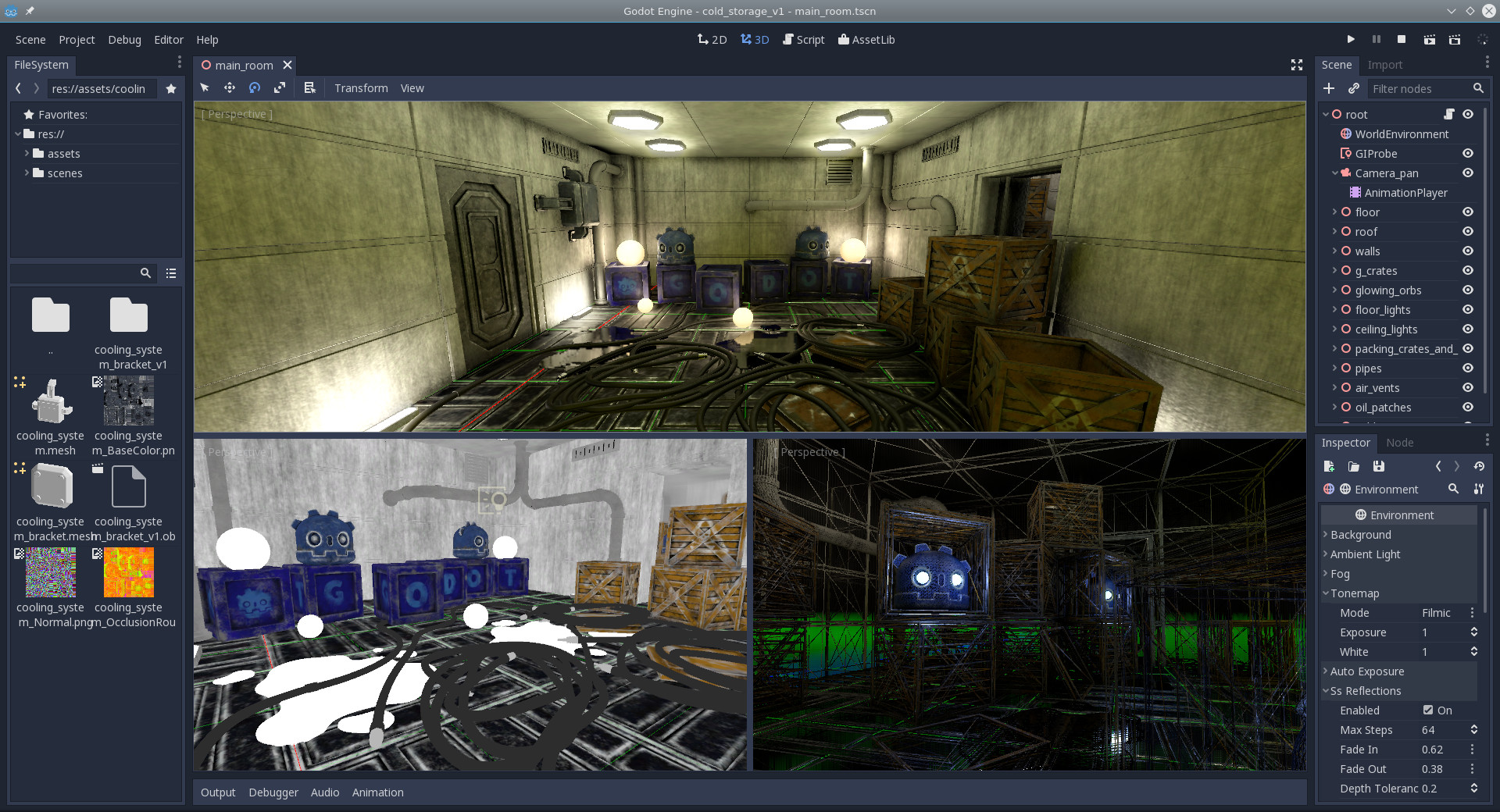Congratulations to everyone in the Godot community for the tremendous work done on this release since 18 months, with hundreds of contributors pushing almost 7500 commits with more than 3000 PRs and closing over 2000 issues (and fixing even more than that, as many work-in-progress bugs were fixed before an issue could be filled). Godot 3.0 is definitely our biggest and boldest release so far, and we want to thank the whole community for their unswerving support during this long wait. From there on, there is a lot of work to do to strengthen the foundations that we built with 3.0, fixing the bugs that the many refactorings probably introduced, optimizing new features and enhancing the usability again... The 3.x era should be a fruitful one for Godot, and we hope that you will continue using it to create awesome 2D and 3D games and increase the notoriety of your favourite engine in the game development industry. And now, let's all start waiting for 3.1...
Godot Engine
Homepage: https://godotengine.org
2D and 3D cross-platform game engine
Godot Engine is a feature-packed, cross-platform game engine to create 2D and 3D games from a unified interface. It provides a comprehensive set of common tools, so that users can focus on making games without having to reinvent the wheel. Games can be exported in one click to a number of platforms, including the major desktop platforms (Linux, Mac OSX, Windows) as well as mobile (Android, iOS) and web-based (HTML5) platforms.
Free, open source and community-driven
Godot is completely free and open source under the very permissive MIT license. No strings attached, no royalties, nothing. The users' games are theirs, down to the last line of engine code. Godot's development is fully independent and community-driven, empowering users to help shape their engine to match their expectations. It is supported by the Software Freedom Conservancy not-for-profit.
Before being open sourced in February 2014, Godot had been developed by Juan Linietsky and Ariel Manzur (both still maintaining the project) for several years as an in-house engine, used to publish several work-for-hire titles.
Getting the engine
Binary downloads
Official binaries for the Godot editor and the export templates can be found on the homepage.
Compiling from source
See the official docs for compilation instructions for every supported platform.
Community
Godot is not only an engine but an ever-growing community of users and engine developers. The main community channels are listed on the homepage.
To get in touch with the developers, the best way is to join the #godotengine IRC channel on Freenode.
Documentation and demos
The official documentation is hosted on ReadTheDocs. It is maintained by the Godot community in its own GitHub repository.
The class reference is also accessible from within the engine.
The official demos are maintained in their own GitHub repository as well.
There are also a number of other learning resources provided by the community, such as text and video tutorials, demos, etc. Consult the community channels for more info.

